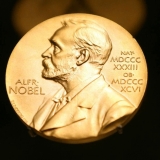A geopolitical love-hate triangle: the West, China and Russia
Since 1970s, when Henry Kissinger introduced China into the US foreign policy considerations, there have been numerous attempts to figure out how the classical trio ought to dance to outsmart each other without upsetting the global political and economic system. (The West means USA + EU + other West-leaning democracies scattered around the world.)
Of course, there could be myriads of reasons and circumstances why a country wants to cooperate, deter or stay away from another country at a particular moment in time. However, when speaking of grand long-lasting geopolitical configurations, all those versatile factors can be basically reduced to just three – internal political system, economy and climate. After all, geopolitics does not exist in an empty space and is not a self-sufficient category but rather a derivative of other, more fundamental preconditions.
By internal political system we mean societal norms and customs nurtured by centuries of history and culture, as well as the current nature of domestic political power based on either democratic or authoritarian principles. In this sense, it is quite obvious that the USA and Europe are united on one side, while China and russia stick together on the other side. Since Columbus the trans-Atlantic relationship has been very strong in terms of ethnic similarity, predominant religion, trade and cultural exchange. This togetherness crystalized after WWII in the form of political unity, common defence and shared democratic values. On the contrary, both Beijing and moscow claim to be exceptional civilizations, which had been developing in relative isolation from the rest of the world, but later became expanding empires with the messianic role to conquer their neighbors. Their internal politics is shaped around the rigid vertical of power impersonated in a single leader or a party controlling all domains of popular life. From this angle, the Sino-russian tandem is clearly in sharp opposition to the Euro-Atlantic partnership.
Economy is a tricky beast. It is global, market-based and capitalist everywhere, although its Chinese and russian versions differ quite significantly from the Western standard by their subservient status to the political leadership. For our present analysis it is important to note that China and the West are much more connected and inter-dependent economically and financially than China and russia. It is true that Beijing is buying russian fossil fuels at a discount, but it can just as well buy them from the Middle East; the Russian-Chinese trade turnover is steadily rising, but is still not comparable to Chinese-Western massive trade and investment cooperation. In other words, economy-wise Beijing would prefer to continue comfortable cooperation with the West generally playing according to international rules but occasionally using dirty tricks like subsidizing its exports or grabbing rare earth reserves.
Climate is a relatively novel category that is going to exert an increasingly harsher impact on all ways of life on planet Earth. It may not be ignored any longer and, in a near future, may even surpass all other geopolitical calculations. We are witnessing in real time rising temperatures and natural disasters occurring across all nations regardless of their ideology, political system or economic clout. Still, out of our geopolitical trio the russian federation looks like it is best suited to withstand and survive the imminent climate Armageddon. So, the huge Eurasian landmass from st. petersburg to vladivostok becomes a very appealing chunk of livable space for other nations. When high temperatures, tornadoes and floods will keep breaking down electrical grids en masse and endangering civilian and military nuclear facilities, the Chinese may consider that the fresh water of deep Baikal lake is much more important than semiconductors from Taiwan. Likewise, at some point in future Europe might come to believe that its expansion to the East is more likely to resolve its existential problems than remaining dependent on trade with China. As for the North Americans, they will be so much immersed in their own climate calamities and internal conflicts, that it will be very difficult for them to keep their finger on the developments elsewhere. They might just have enough time and resources to jump across the Bering Sea when the time is ripe.
The exact and ultimate outcome of the geopolitical triangle depends on how much value each of its participants attaches to regime stability, economic prosperity and climate safety.
Let us consider the West first. Its political system is based on electoral democracy, rule of law, free society. The change of names at the top does not matter much as long as institutions keep functioning. The West does not seem to have much appetite any longer to export its democracy abroad (except to its closest neighborhood and EU candidate members). There is a risk of eroding democracy at home by subversive foreign agents, but so far so good; in this regard USA and Europe are more or less safe. The awareness of climate risks is present, but subject to internal political fluctuations. A change of the US Administration or the enlarged presence of the far rights in the next European Parliament will probably push the green agenda behind other priorities. Hence, economy tops the Western priority list. Partial decoupling from russia within a relatively very short time took enormous efforts and is still very imperfect. Future economic de-risking and decoupling from China is already a locked-in policy, but again cannot happen overnight. Basically, in the foreseeable future the West is stuck with China but can wriggle itself out and away from Russia, provided there is a little less greed and a little more political will.
Let us look at russia next. Regime stability is definitely on the very top of its priorities. As this war has shown very clearly, moscow is ready to sacrifice its economy for the sake of internal integrity, which can be obtained only through reprisals against its own population and perpetual expansion, aggression and occupation of the contiguous space around its borders. Of course, russian leaders love money and cannot maintain stability without financial revenues altogether. They would prefer continuing economic cooperation with Europe with no strings attached, whereas such cooperation with China is more risky, logistically difficult and brings in fewer profits. As for the climate, kremlin could not care less, also because this aspect does not pose an existential risk to the regime.
China is the most interesting case study. It co-opted Western capitalism (with a communist flavor) hoping to beat it in its own turf. The Belt and Road Initiative is akin to Western colonialism in preceding centuries. However, Chinese economy proved to be prone to the same Western maladies, like financial bubbles, property market crash or mounting private debts. So, realizing that in the fiat money world Renminbi will never beat USD, and the EU is increasingly more cautious vis-a-vis Beijing while aggressively courting the same African and Asian clients, China seems to become more introvert and preoccupied with the preservation of its internal stability. Production of 60% and processing capacities of 85% of rare earth minerals on its territory gives Beijing both an important leverage over the West as well as a security guarantee against Western abrupt economic divorce from PRC. These trends, as well as its outspoken support of russia in the war against Ukraine show clearly that China is choosing regime stability of its own and other totalitarian systems over the economic benefits of Western capitalism. In this regard, it is very naïve of those US politicians who dream of engaging russia for the purpose of containing China. On climate issues the Chinese are well aware of the imminent dangers and try to implement rigorously technologies and practices for the green transformation, with mixed success. Shortages of fresh water and rising temperature in the South Eastern part of the country will inevitably push them to expand to the Himalayas and to the North.
Conclusion
The West views russia as a hostile country with incompatible values, which has little to offer economically – apart from fossil fuels, which are being phased out anyway – and which destroys and pollutes nature habitually. Russia would not mind doing business as usual with the West, but it does not seem likely any time soon. Hence, there is no solid basis for any marriage between the two.
The West and China are glued together economically. However, frequent natural disasters and plausible future pandemics are already fragmenting and deglobalizing economy disrupting supply chains and encouraging local production and consumption. Besides, mutual mistrust and a huge value gap leads to de-risking, decoupling and friend-shoring policies. Both partners are aware of the inevitable divorce, but prefer to make it as slow and painless as possible. As long as China does not perceive a direct and imminent threat to its regime, it is unlikely to start a major war in its region. On the other hand, it is in the interest of PRC to weaken both the West and rf, so it will continue to help Moscow, including militarily, so the two adversaries will bleed out.
China and russia are strong allies today as the two totalitarian regimes. However, in the future it will be in the interest of China to occupy and carve up the russian federation as a vast habitable space in the face of existential climate change.
So, In the love-hate triangle:
The love between the West and russia is impossible. The current hatred may turn to co-existence and indifference in the medium term and to capture of russia in the long term.
The love between the West and China is temporary based on strong economic ties but will turn to hatred or indifference in the medium to long term.
The love between China and russia is temporary based on similar political regimes, but it will turn to hatred in the medium term when the two sides clash for resources.
Paradoxically, Ukraine, with its global GDP share of 0.15%, can determine the outcome of this geopolitical struggle for many decades ahead. The defeat of Ukraine would mean the strengthening of totalitarian regimes worldwide and their further expansion to capture neighbors. The victory of Ukraine will force Beijing to reconsider its love relationship with moscow and make partner with the West to divide the russian empire.






